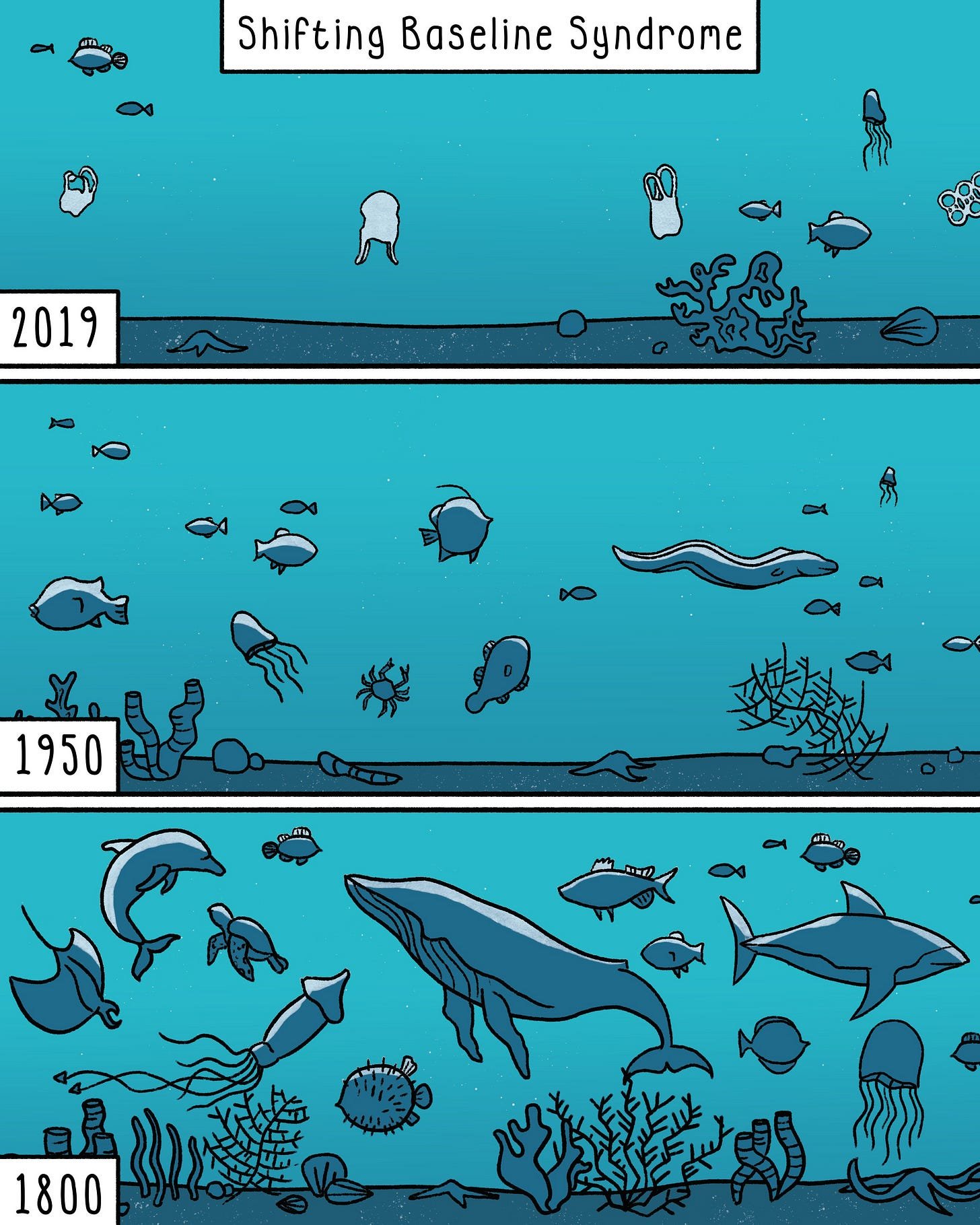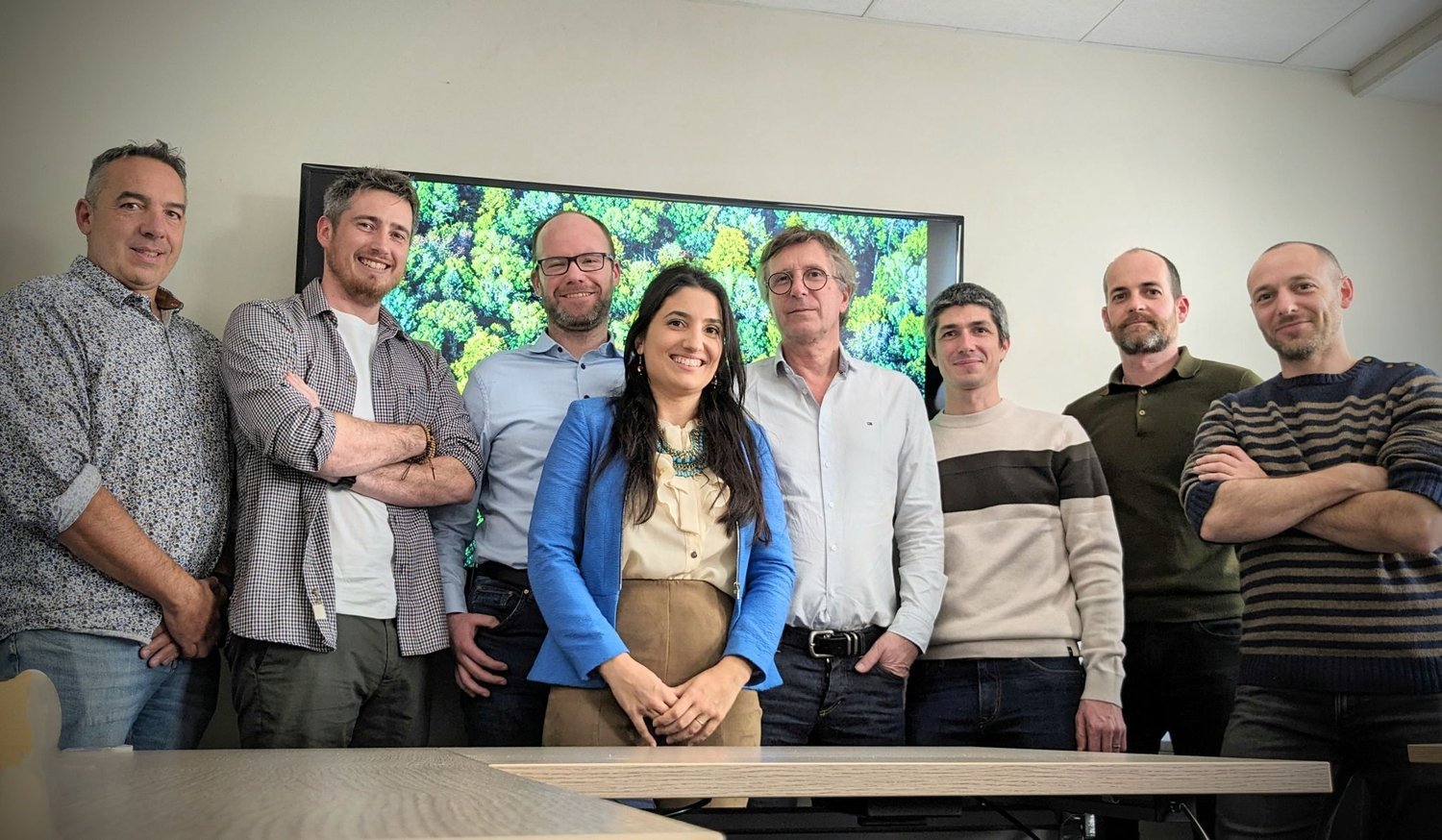We Need to Work on our Environmental Amnesia
Do you remember the last time you were able to admire a starry sky on a clear night?
The one that gives the impression of being absorbed by the immensity of the universe. Unless you live in a dark sky reserve such as Aoraki Mackenzie International Dark Sky Reserve, most people would say they don’t.
The light pollution caused by Musk’s Starlink is causing long streaks of light to appear in long-exposure images and the company plans to launch a minimum of 12,000 satellites over the coming months, though the figure may exceed 30,000 in the long run.
Shifting Baseline Syndrome
The term “Shifting Baseline Syndrome” was coined by Daniel Pauly in 1995, while speaking of increasing tolerance to fish stock declines over generations, the concept also has roots in psychology, where it is referred to as ‘environmental generational amnesia’. Simply put, Shifting Baseline Syndrome is a gradual change in the accepted norms of the natural environment due to a lack of memory and/or knowledge of its past condition.
To go further, don't miss Daniel Pauly's TED talk on the subject, as well as his short article: Anecdotes and the shifting baseline syndrome of fisheries (Trends in ecology and evolution, volume 10, number 19, October 1995 )
According to a report by the “Institut de veille sanitaire”, today, 4 out of 10 children never play outside during the week.
In Historical evidence for nature disconnection in a 70-year time series of Disney animated (Anne-Caroline Prevot-Julliard, Romain Julliard, Susan Clayton) films we demonstrate one manifestation of this nature disconnection, they found that natural settings are increasingly less present as a representation of outdoor environments in these films. They considered 60 animated feature films that were distributed for viewing by the public between Snow White 1937 and Tangled 2010. These results demonstrate the increasing nature disconnection of the disney filmmaking teams. Even more so the films Cars 2006 the cow are not even real cows but depicted as trucks.
How and why reconnect to nature ?
Spending time in nature is the best way to rediscover your connection to it and reduce the effect of our this shifting baseline syndrome. It can be done event in the city by visiting a local parks or organizing short getaways on the weekends. Be aware of your surroundings: the wind on your skin, the warmth of the sun, the sound of the trees as they move and the song of the birds all around , this practice has shown positive psychological benefits.
Shinrin-Yoku (森林浴) is a Japanese term that translates to “Forest Bathing” in English and involves spending free time wandering in nature. This therapeutic method was developed in the 1980s in Japan, and it was designed to enhance wellbeing, health, and joy. It’s used widely in the country for purposes of preventative healthcare in Japanese medicine.
Go Slow and Take Note of Minor Details – the primary purpose of Shinrin-Yoku is to slow down and let your senses feel the tiniest details of nature. Use your hands to touch and connect with nature’s wonders. Feel the breeze and let the sun shine on you under the tree canopies as you rid your mind of any thoughts.
Ontario health-care providers are now offering “Parks Prescriptions” through a new program called PaRx that recommends spending time in nature as a way to fight depression and other ailments. Likewise, the Centre for Addiction and Mental Health says nature can have a nurturing effect on your mental health. Even just spending 15 to 20 minutes per day outdoors in nature can be beneficial, research shows.
In the UK 2.6 million people are without access to green space within a ten minute walk. The Covid-19 outbreak has elevated the status of parks and urban green spaces, demonstrating that parks are essential assets and not luxuries. Nature is an intrinsic part of our humanity and an essential source for meeting our needs. Nature should be central to any strategy concerned with well-being; economic, health, education, transport.
How we can help ?
We at Natural Solutions have been builting apps for biodiversity to Reconnect people to nature and helped numerous clients clients find to innovative ways to reconnect people to nature .
Citizen science can be an effective way to engage people with nature and collect data on a large scale and have the potential to increase public understanding and to foster a sense of community and engagement.
By participating in science projects, members of the public can learn more about the natural world, as well as gain a better understanding of the process. This can be a rewarding and educational experience for people of all ages and backgrounds. For example, citizen scientists can help researchers track the movements of migratory birds, monitor air and water quality, and study the effects of climate change. This data can be used to inform policy and make important decisions about the environment and public health.
So please get in touch and setup a meeting
















